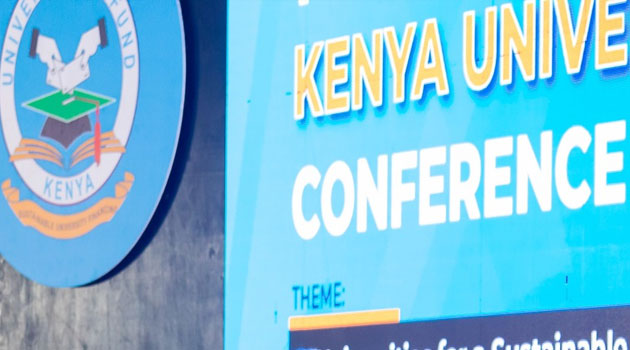
Questions raised how Kisii University was allocated highest KCSE cohort despite insufficient capacity » Capital News
NAIROBI, Kenya June 11- Members of Parliament have commenced investigations on student placement in various universities as certain higher learning institutions received huge enrollment despite insufficient capacity.
Details show that Kisii University received 16,000 cohorts in the placement of the KCSE 2023 which was the highest even though they lacked enough human personnel and infrastructure to host the students compared to other learning institutions.
Appearing before the National Assembly Education Committee led by Tinderet MP Julius Melly, the Commission on University Education failed to conclusively answer to the queries raised by lawmakers raising eyebrows on the matter.
Commission of University Education, head of the accreditation program, Marcela Mwaka explained that Kisii University received the highest cohort due to the available accredited programs in the institution.
“We do the validation by considering the available resources in the university and considering the accreditation status of the programs. Kisii University has 82 accredited degree programs which is the third largest,” Mwaka said.
It emerged that the 16,000 cohorts required 1000 lecturers, in the teacher versus student ratio, yet Kisii University has only 317 academic staff,91 lecture halls and 14 laboratories.
“We would expect the institution to have over 1000 academic staff but they are 317 staff currently,”Mwaka stated.
MP Melly mentioned it was unfortunate for the Commission of University Education to solely consider the accredited program while making placement without considering the teaching staff or the available infrastructure.
“Are you sleeping on the job or aiding inefficiency. We will deal this issue substantially. You are aiding ineffectiveness in our universities. If you can accept a university to have 16,000 cohorts yet you have 316 staff. You are misusing Kenyans,” the Committee Chair said.
Kasipul Kapondo MP Eve Obara poked holes on how Kisii University was suited to accommodate the largest cohort yet other founding learning institutions which include University of Nairobi have more accredited programs.
“Can they confirm which is the largest university in Kenya. I have seen the capacities given here and am seeing in your record Kisii University appearing to be the largest. Is that factual?” Obara posed.
Kibra MP Peter Orero questioned whether how other giant academic learning institutions failed to meet the threshold pointing out the allocation could have been skewed in favor of Kisii University.
“You want to tell us that Kisii University is the biggest university in terms of lecturers and other facilities. That it doubles Nairobi University?” Orero queried.
Commission of University Education defended their analysis and accreditation of program was not skewed saying the accreditation report showed they could accommodate the highest number of cohorts.
The accreditation report showed Kisii University has 317 academic staff and 14 laboratories with the CUE asserting it met the minimum requirement to accommodate the students.
“We also consider the size of the learning facilities, the available laboratories. The available resources should be able to dedicate the number of students to be placed in a program,” Mwaka said.
Legislators were however unsatisfied with the response pointing out the ineffectiveness of CUE in the placement of students saying the situation will sabotage effective delivery of learning in universities.
“What’s is the workload of every lecturer? How many students or courses is one lecturer supposed to teach? ” questioned Obara.
Chair of Vice Chancellors, Daniel Muganda said the Commission of University Education undertakes the approval yearly before placement is done by the Kenya University Central Placement Services (KUCCPS).
“It’s the mandate of KUCCPS to validate the numbers we have given them. Sometimes it requires them to come physically to check the capacity we have declared. Again in the accreditation of programmes, they ascertain whether we have necessary facilities, ”he said.
